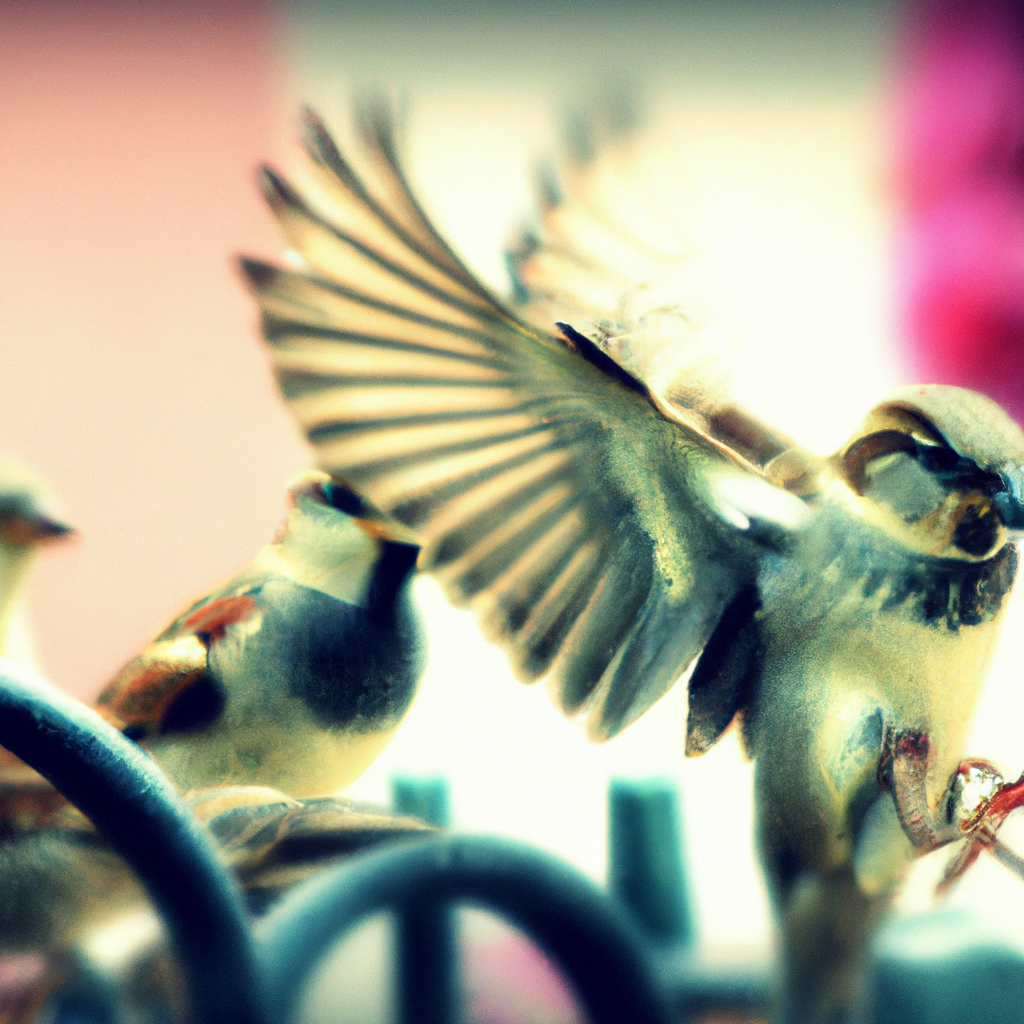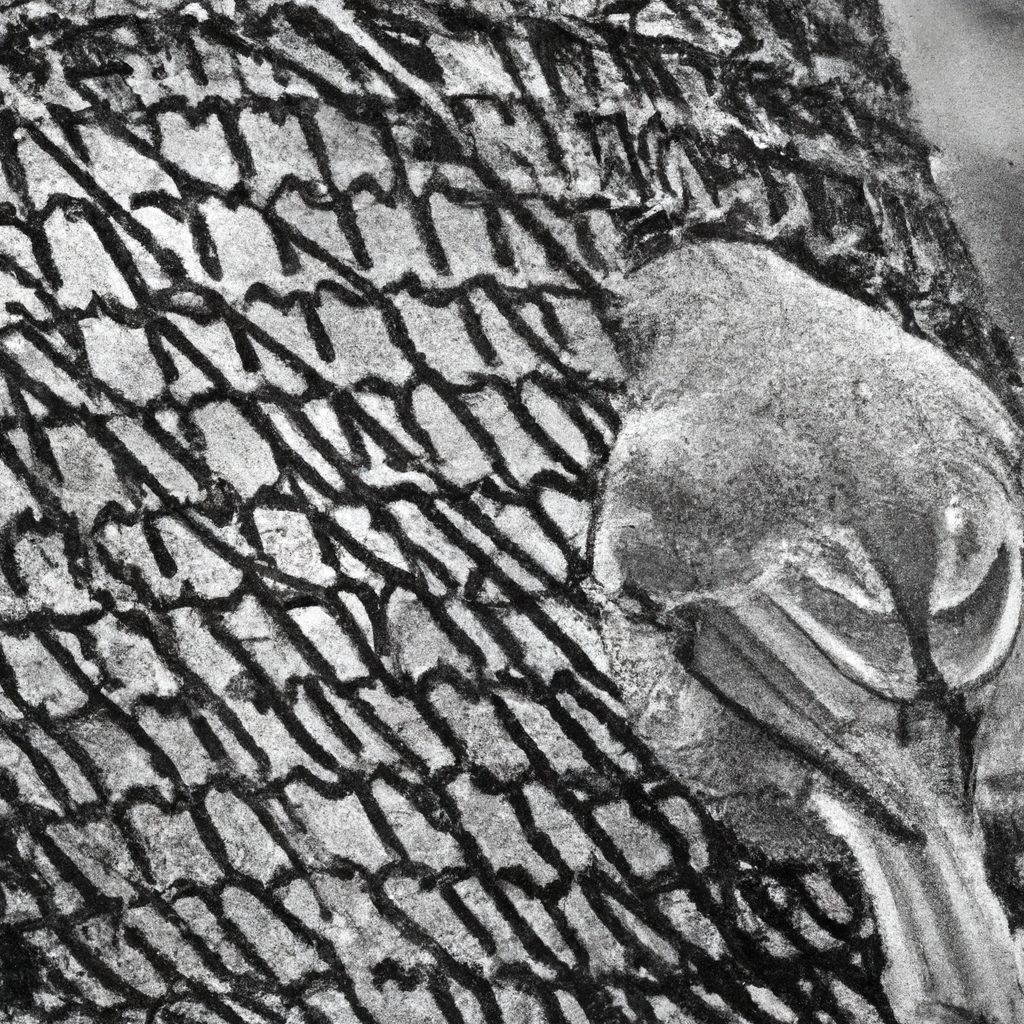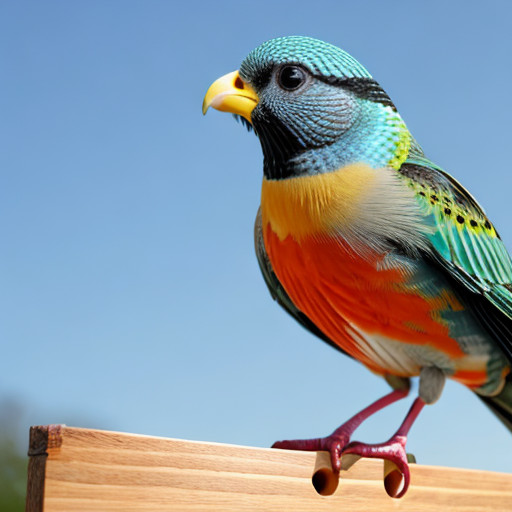In the realm of avian care, observing a bird’s unusual shaking behavior can leave you puzzled and concerned about their well-being. It is important to understand the underlying reasons behind this peculiar behavior, as it can serve as a key indicator of their physical or emotional state. This article aims to shed light on the possible causes behind why your bird may be shaking, offering valuable insights to help you ensure the health and happiness of your feathered companion.
Possible Reasons for Bird Shaking
Stress or Anxiety
One of the possible reasons for bird shaking is stress or anxiety. Birds can become stressed or anxious due to various factors such as changes in their environment, overcrowding, or the presence of loud noises. When birds feel stressed or anxious, they may exhibit shaking as a way to release tension or show signs of discomfort.
Fear or Threat
Another possible reason for bird shaking is fear or threat. Birds are sensitive creatures and can perceive certain situations or objects as threats. When birds feel threatened or scared, they may shake as a defensive response or to prepare themselves for flight. It is important to identify the source of fear or threat and address it appropriately to alleviate the shaking behavior.
Preening
Birds engage in preening to keep their feathers clean, healthy, and properly arranged. During preening, birds may shake their feathers to remove dirt, dust, or excess oil. This shaking behavior is a normal part of a bird’s grooming routine and should not be a cause for concern.
Regulating Body Temperature
Birds have a higher body temperature than humans, and they need to maintain it within a certain range to stay healthy. Shaking can be a way for birds to regulate their body temperature. When birds feel too hot or too cold, they may shake to help dissipate or generate heat. This shaking behavior is a natural and necessary mechanism for their well-being.
Medical Conditions that Cause Shaking in Birds
Neurological Disorders
Certain neurological disorders, such as seizures or tremors, can cause shaking in birds. These conditions may be caused by underlying issues such as infections, injuries, or genetic factors. If a bird is experiencing uncontrollable or frequent shaking, it is important to consult an avian veterinarian for a proper diagnosis and appropriate treatment.
Respiratory Infections
Respiratory infections, such as pneumonia or bronchitis, can also lead to shaking in birds. These infections can affect the bird’s breathing and overall health, causing them to exhibit shaking as a symptom. If a bird is shaking and showing signs of respiratory distress, it is crucial to seek veterinary assistance to prevent further complications.
Parasitic Infestations
Certain parasites, such as mites or lice, can infest a bird’s feathers, skin, or respiratory system, causing discomfort and itching. Birds may shake as a response to these irritations. Regular examination and treatment for parasites are essential to maintain a bird’s health and prevent excessive shaking.
Allergies or Sensitivities
Birds, like humans, can have allergies or sensitivities to certain substances or environmental factors. If a bird is exposed to an allergen or irritant, they may shake as a reaction. Identifying and eliminating the source of the allergy or sensitivity is crucial in reducing a bird’s shaking behavior.
Toxicity or Poisoning
Exposure to toxic substances or poisoning can lead to shaking in birds. Common culprits include household products, certain plants, or foods that are toxic to birds. If a bird exhibits shaking along with other signs of poisoning, immediate veterinary assistance is necessary for proper treatment and recovery.
Behavioral Reasons for Bird Shaking
Excitement or Anticipation
Birds can shake as a result of excitement or anticipation. This behavior is particularly common in social species or birds with highly active personalities. When a bird is excited, such as during playtime or when anticipating a favorite treat, they may show shaking as a form of expressing their enthusiasm.
Mating Behavior
During the mating season, birds may engage in various mating behaviors, including shaking. Male birds, in particular, may shake their feathers as part of their courtship display to attract a mate. This behavior is natural and should be expected during the breeding season.
Territorial Display
Some birds, especially those with territorial tendencies, may shake as a way to assert dominance or mark their territory. This shaking behavior is usually accompanied by other territorial displays such as vocalizations or wing spreading. Understanding a bird’s natural behaviors and providing appropriate outlets for expression can help reduce excessive shaking.
How to Determine the Cause of Bird Shaking
Observe the Bird’s Environment
Start by observing the bird’s environment and surroundings. Look for any changes or factors that may be causing stress or anxiety, such as new pets, loud noises, or disruptions in their usual routine. Identifying potential stressors can help narrow down the possible cause of the shaking behavior.
Check for Physical Injuries or Abnormalities
Carefully examine the bird for any physical injuries, abnormalities, or signs of illness. Check for signs of feather damage, wounds, or swelling. In some cases, underlying health issues or injuries can be the cause of the bird’s shaking. If any abnormality is found, it is essential to seek veterinary advice for further evaluation and treatment.
Monitor the Bird’s Behavior
Keep a close eye on the bird’s behavior and note any patterns or triggers that may be associated with the shaking. Observe their interactions with other birds or animals, as well as their response to certain stimuli. This observation can provide valuable insights into the cause of the shaking behavior.
Seek Veterinary Advice
If the cause of the bird’s shaking remains unclear or if the shaking persists despite efforts to address potential causes, it is advisable to seek veterinary advice. An avian veterinarian can conduct a thorough examination, perform diagnostic tests if needed, and provide appropriate guidance and treatment options for the bird’s specific condition.
This image is property of images.unsplash.com.
Tips for Reducing Stress in Birds
Provide a Safe and Comfortable Environment
Creating a safe and comfortable environment is crucial in reducing stress for birds. Ensure that the bird’s cage or enclosure is appropriately sized, clean, and well-equipped with perches, toys, and other enrichment items. Minimize exposure to potential stressors, such as drafts or extreme temperatures, and provide a quiet and peaceful space for the bird to retreat to when needed.
Establish a Regular Routine
Birds thrive on routine and predictability. Establishing a regular daily routine can help reduce stress and provide a sense of security for the bird. Make feeding, playtime, and sleep schedules consistent to help the bird feel more at ease.
Offer Mental Stimulation and Enrichment
Engaging a bird’s mind through mental stimulation and enrichment activities can be an effective stress-reducing strategy. Provide puzzle toys, foraging opportunities, and interactive games to keep the bird intellectually stimulated and entertained. This can alleviate boredom and reduce the likelihood of stress-induced shaking behaviors.
Avoid Excessive Noise or Disturbances
Birds are sensitive to loud noises and excessive disturbances. Keep the bird’s environment as quiet as possible, especially during their resting or sleeping periods. Minimize exposure to sudden or harsh sounds that can startle or stress the bird.
Treatment and Care for Shaking Birds
Consult an Avian Veterinarian
When a bird is shaking persistently or showing signs of illness, it is essential to consult an avian veterinarian. A professional veterinary examination and evaluation can help determine the underlying cause of the shaking and guide the appropriate treatment plan.
Follow Recommended Treatment Plan
Once the cause of the bird’s shaking is identified, it is crucial to follow the recommended treatment plan provided by the avian veterinarian. This may involve medication, dietary changes, environmental adjustments, or behavioral modifications. Consistency and adherence to the treatment plan are key to the bird’s recovery and well-being.
Adjust the Diet and Nutrition
A balanced and nutritious diet is vital for a bird’s overall health and well-being. Ensure that the bird is receiving the appropriate food and nutrients for their species. Consult with an avian veterinarian or avian nutritionist to determine the best diet for the bird’s specific needs.
Provide Appropriate Medication if necessary
In cases where underlying medical conditions are causing the bird’s shaking, the avian veterinarian may prescribe medication to alleviate symptoms and promote recovery. It is important to administer medication as directed by the veterinarian and closely monitor the bird’s response.
Regular Health Check-ups
Regular veterinary check-ups are essential for maintaining the health of a bird. Routine examinations can help identify potential health issues early on and prevent the development of more serious problems. Follow a recommended schedule for health check-ups and vaccinations as advised by the avian veterinarian.
This image is property of images.unsplash.com.
Prevention and Maintenance of Bird Health
Ensure a Balanced Diet
Providing a balanced and nutritious diet is crucial for maintaining a bird’s overall health. Consult with an avian veterinarian or avian nutritionist to determine the appropriate diet for your bird’s species and individual needs. Offer a variety of fresh fruits, vegetables, high-quality pellets, and occasional treats to ensure proper nutrition.
Practice Good Hygiene and Sanitation
Routine hygiene and sanitation practices are essential for preventing the spread of diseases and maintaining a healthy environment for birds. Clean the bird’s cage or enclosure regularly, including the perches, toys, and feeding dishes. Monitor for signs of mold or bacterial growth and promptly address any issues.
Regular Exercise and Physiological Enrichment
Physical exercise and psychological enrichment are vital for a bird’s overall well-being. Provide opportunities for physical activity, such as flying or regular time outside of the cage in a safe and supervised environment. Additionally, offer various toys, puzzles, and interactive activities to keep the bird mentally stimulated and engaged.
Monitor for Signs of Illness or Stress
Regularly monitor your bird for any signs of illness or stress. Pay attention to changes in appetite, behavior, vocalizations, and droppings. Any sudden or significant changes should be promptly addressed by seeking veterinary assistance.
Common Behavioral Signs of a Healthy Bird
Active and Engaged Behavior
A healthy bird will exhibit active and engaged behavior. They will show curiosity, explore their environment, and interact positively with their human caregivers or fellow birds. Active engagement in play and socializing are signs of a healthy and contented bird.
Smooth and Shiny Feathers
Feathers are an important indicator of a bird’s overall health. Healthy feathers should be smooth, shiny, and well-maintained. Regular preening and proper nutrition contribute to the quality of a bird’s feathers.
Eating and Drinking Regularly
A healthy bird will have a regular appetite and consume food and water at appropriate intervals. Consistent eating and drinking patterns indicate a properly functioning digestive system and overall well-being.
Clear and Regular Vocalizations
Birds communicate through vocalizations, and clear and regular vocalizations are signs of a healthy bird. Prioritize familiarizing yourself with your bird’s typical vocalizations and note any changes or irregularities that may indicate an underlying health issue.

Common Behavioral Signs of an Unhealthy Bird
Lethargy or Weakness
Lethargy or weakness are common behavioral signs of an unhealthy bird. A visibly tired or weak bird may exhibit reduced activity levels, lack of interest in their surroundings, and limited interaction with their environment or caregivers.
Visible Physical Abnormalities
Physical abnormalities, such as inflamed or swollen areas, missing feathers, or growths, can indicate underlying health issues. It is important to regularly inspect your bird’s body, feathers, and skin for any visible abnormalities.
Change in Appetite or Water Consumption
A change in appetite or water consumption is often indicative of an illness or underlying health problem in birds. If your bird suddenly exhibits a decrease or increase in food or water intake, this could be a sign of an issue that requires veterinary attention.
Abnormal Droppings
Bird droppings can provide valuable insights into a bird’s health. Changes in consistency, color, or frequency of droppings can indicate potential health issues. Monitor your bird’s droppings regularly and consult a veterinarian if you notice any irregularities.
When to Seek Veterinary Assistance
Prolonged or Intense Shaking
If a bird’s shaking persists for an extended period or intensifies, it is important to seek veterinary assistance. Prolonged or intense shaking can be indicative of underlying health conditions that need professional evaluation and treatment.
Accompanied by Other Distress Signals
If the bird’s shaking is accompanied by other distress signals such as labored breathing, loss of appetite, or unusual behaviors, it is crucial to seek immediate veterinary assistance. These signs may indicate a severe health issue that requires urgent intervention.
No Improvement over Time
If the bird’s shaking does not improve over time, despite efforts to address potential causes or following a recommended treatment plan, veterinary assistance should be sought for further evaluation and alternative treatment options.
Concerns about Bird’s Well-being
If you have any concerns about your bird’s well-being, including their shaking behavior, it is always advisable to consult with an avian veterinarian. They can provide professional guidance, conduct necessary tests, and ensure the best course of action for your bird’s health and happiness.
In conclusion, bird shaking can have multiple possible reasons ranging from stress and anxiety to medical conditions or behavioral factors. Identifying the root cause of the shaking is important in order to provide appropriate care and treatment for the bird. Seeking veterinary advice, establishing a safe and comfortable environment, and maintaining a healthy diet and regular exercise are essential for the well-being of birds. Regular monitoring of behavior and seeking veterinary assistance when needed are key in ensuring a healthy and happy life for our avian companions.



